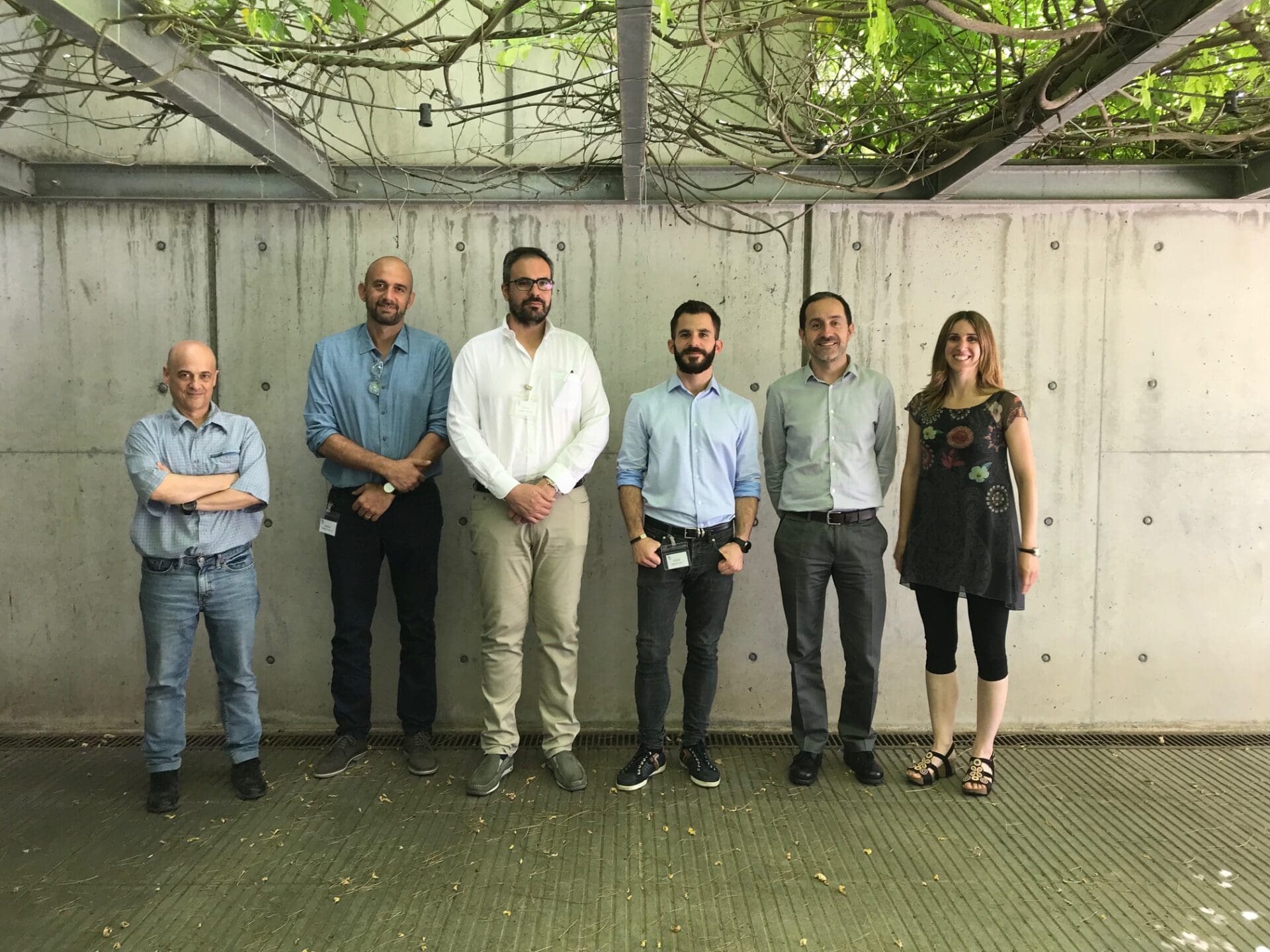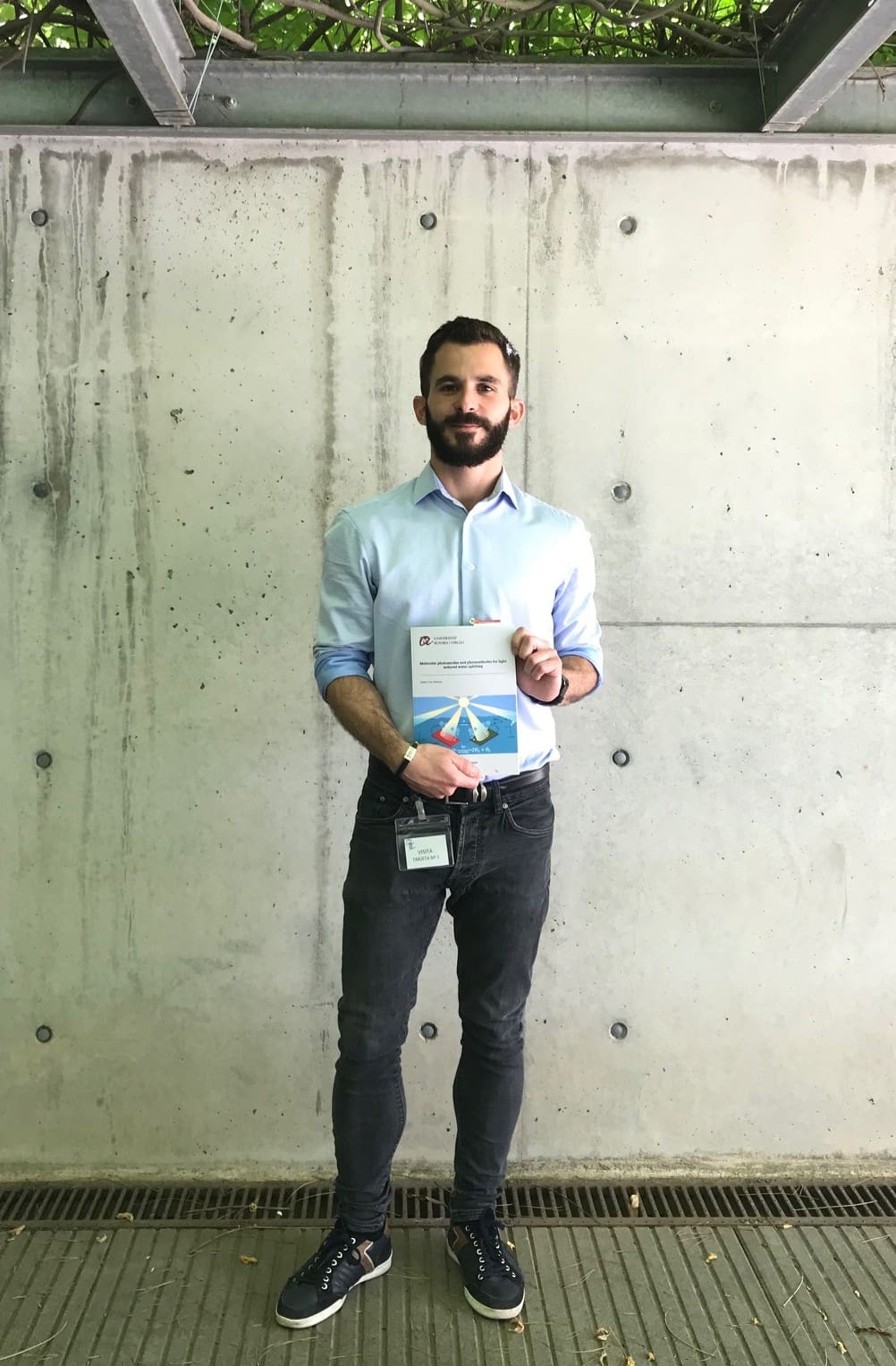Congratulations Dr. Grau!
Dr Sergi Grau
Sergi Grau Abarca, PhD student under the supervision of Prof. Toni Llobet (ICIQ) has defended his PhD Thesis entitled “Molecular Photoanodes and Photocathodes for Light Induced Water Splitting” (assigned to the Department of Physical and Inorganic Chemistry of the Universitat Rovira i Virgili) publicly on July 10th at the ICIQ Auditorium.
The members of the examining committee were: Prof. Jordi García-Antón Aviñó (Autonomous University of Barcelona), Prof. Cyril Godard (University Rovira i Virgili) and Prof. Stefano Caramori (Università degli Studi di Ferrara).

Dr. Grau with the members of the examining committee and his supervisors, Toni Llobet and Carolina Gimbert.
Dr. Grau is from the Eixample of Barcelona. He studied chemistry at the University of Barcelona, where he also pursued the Applied Materials Chemistry Master before deciding to join ICIQ’s Llobet group for his PhD with a Severo Ochoa mobility grant. In his free time, he enjoys running, playing sports and board games. During the last year he has also enjoyed playing with his two cats.
Why did you become a scientist? What would you want to achieve as a scientist?
Since I was a child, I was curious about many different things: how do cells work? Why does stuff dissolve in water? I’d ask my mom that kind of questions all the time. It was pretty clear I’d study science; the question was which one. I ended up choosing chemistry because it’s a central science that will allow me to understand the world better.
As a scientist, I’d like to help solve transcendental problems, such as our energy dependency… although I’m (painfully) aware there are multiple elements at play, not only research itself but funding and economic interests, etc. It will take a long time to solve this problem – and gas is too cheap now-, but we’ll need to find an alternative soon.
From the lessons learnt at ICIQ, which one do you value the most?
I have worked in a small lab with a lot of people, around 12 or 14 people doing research together. Aside from all the science I’ve learnt, the lesson that I value the most is having learnt to work within a group of people: how to share the space, get yourself organized, mediate and solve problems… I think this is something that will be useful anywhere I go!
What will you miss the most from ICIQ?
Working with people from all around the world, I think this really opens up your mind. There were a lot of linguistic jokes that I tried – and, I think, failed– to explain to people who were learning Spanish.
What advice do you have for someone who’s starting their PhD now?
It’s extremely important to organize your time efficiently and you must love what you are doing. I knew from the beginning that pursuing a PhD wouldn’t be easy, but I’ve come to realise how important it is to plan your work and time in an efficient way. It would have been nice to know there are moments during the PhD when you really need to roll up your sleeves and work extremely hard, but there are calmer moments too. In the beginning, I didn’t realise this and got used to spending way too much time at work and not being as efficient as I should have been.
Where are you going next? What will you do there?
I’d like to work in industry, although I’m not certain yet in what exact role I’d feel more comfortable.
If you were a piece of lab equipment, what would you be?
A potentiostat, it induces chemical reactions using electricity and it allows you to follow the reaction in real time – I think it’s really useful!
Related news

Let's create a brighter future
Join our team to work with renowned researchers, tackle groundbreaking
projects and contribute to meaningful scientific advancements







 20-12-2024
20-12-2024 


















